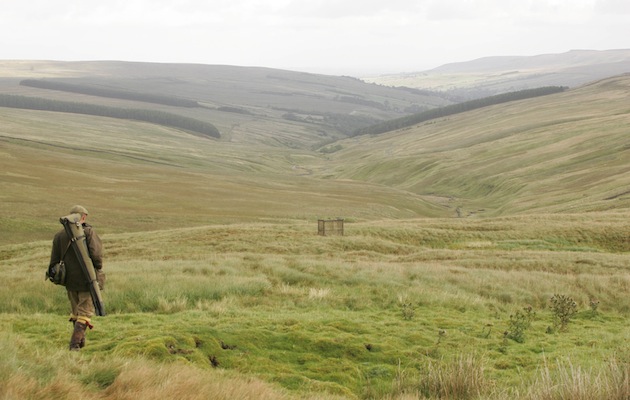Ex-RSPB conservation director says driven grouse shooting should be banned
Dr Mark Avery, former conservation director, has called for the sport to be made illegal

driven grouse shooting
The RSPB has taken a neutral position on the matter of driven grouse shooting.
However, in his book Inglorious – Conflict in the Uplands, which is to be published tomorrow – just two weeks before the Glorious Twelfth – Dr Avery says that the sport should be banned.
The controversial views of the author are guaranteed to stir up a debate about fieldsports, the countryside and business.
Dr Avery states that he has drawn his conclusion for banning the fieldsport after many years of soul-searching. He puts forward different points of view: grouse shooting is economically important (worth around £25 million a year to the Scottish economy) and it is a great British tradition. On the other hand the author claims there is too much illegal killing of wildlife, such as buzzards, golden eagles and hen harriers.
Hen Harrier Day timed to coincide with Glorious 12th
The book also details Dr Avery’s campaigning with TV presenter Chris Packham to gain support for the proposal to ban grouse shooting, culminating in ‘Hen Harrier Day’ which coincides with the ‘Glorious’ 12th.
What is the Hen Harrier Joint Recovery plan?
To try to resolve the conflict between grouse and harriers, Defra has brought together moor owners, gamekeepers and conservation groups with the aim of increasing hen harrier numbers. The group – known as the Hen Harrier Sub-Group of the Uplands Stakeholder Forum – has produced a Hen Harrier Joint Recovery plan and Defra will announce soon whether the plan will go ahead. Members of the group include representatives from Natural England, the Moorland Association, the National Gamekeepers’ Organisation, the Game & Wildlife Conservation Trust, the National Park Authority and the RSPB.
The package of options ensures both hen harriers and grouse populations can thrive and features the following points:
- Law enforcement, prevention and intelligence – led by a senior police officer
- Ongoing monitoring of breeding sites and winter roost sites
- Research of the movement of hen harriers using satellite tracking
- Diversionary feeding of hen harriers to reduce predation on grouse chicks
- Engagement study about reintroducing them across suitable habitat in England
- Trial the temporary movement of hen harrier young to aviaries (brood management)








